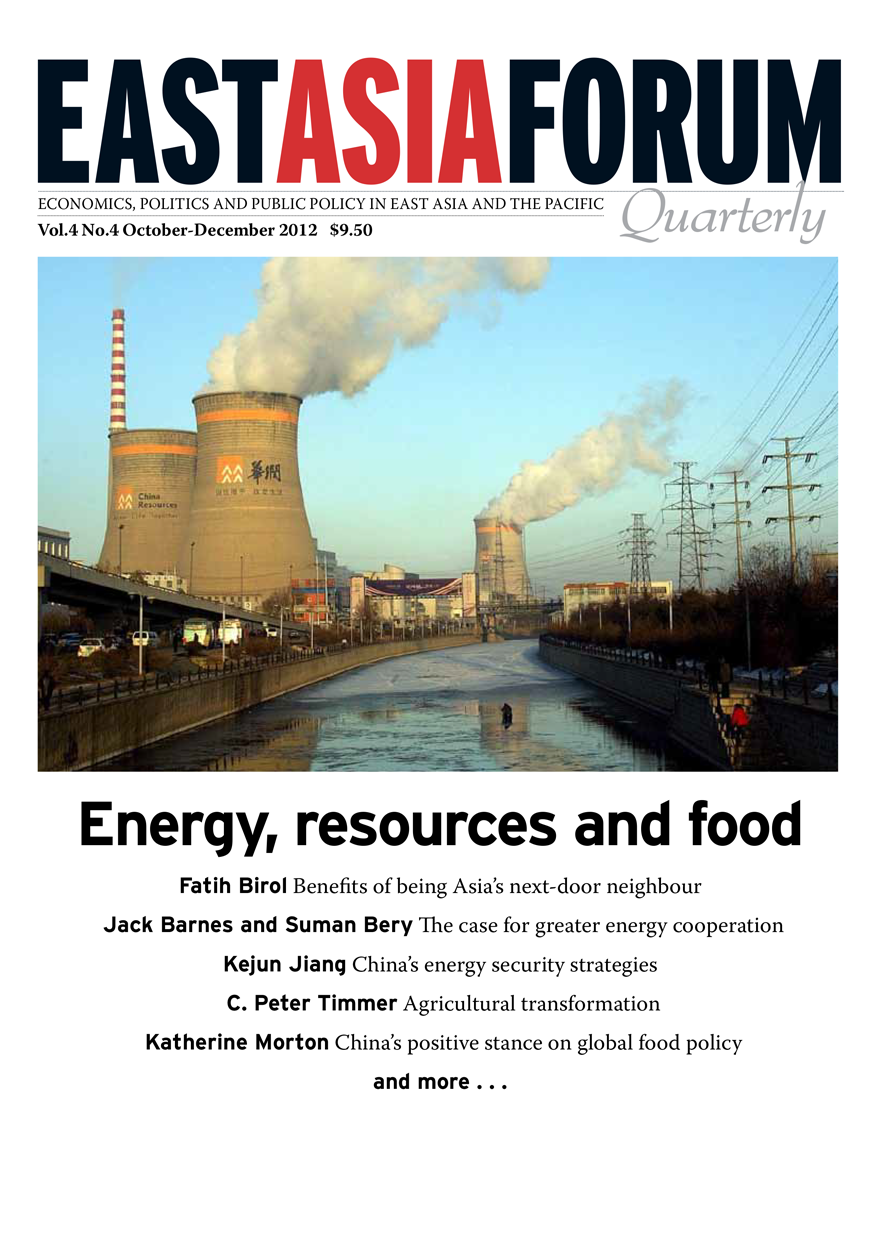Search titles
Displaying results 31 to 40 of 46.

Henry Prinsep's Empire »
Framing a distant colony
Authored by: Malcolm Allbrook
Publication date: September 2014
Henry Prinsep is known as Western Australia’s first Chief Protector of Aborigines in the colonial government of Sir John Forrest, a period which saw the introduction of oppressive laws that dominated the lives of Aboriginal people for most of the 20th century.
But he was also an artist, horse-trader, member of a prominent East India Company family, and everyday citizen, whose identity was formed during his colonial upbringing in India and England. As a creator of Imperial culture, he supported the great men and women of history while he painted, wrote about and photographed the scenes around him. In terms of naked power he was a middle man, perhaps even a small man. His empire is an intensely personal place, a vast network of family and friends from every quarter of the British imperial world, engaged in the common tasks of making a home and a career, while framing new identities, new imaginings and new relationships with each other, Indigenous peoples and fellow colonists. This book traces Henry Prinsep’s life from India to Western Australia and shows how these texts and images illuminate not only Prinsep the man, but the affectionate bonds that endured despite the geographic bounds of empire, and the historical, social, geographic and economic origins of Aboriginal and colonial relationships which are important to this day.

Deepening Reform for China's Long-term Growth and Development »
Edited by: Ross Garnaut, Cai Fang, Ligang Song
Publication date: July 2014
The Chinese economy has entered a new phase of development in which sources of growth are not so much dependent upon pure increases in labour, investment and credit expansion, but from productivity improvement, structural changes, technological progress and the benefits from improvement of the social security and welfare improvement. When market functions are fully established to become a main channel for allocating resources, the entrepreneurship will flourish engaging in more innovative activities, workers will move more freely and have more incentives to improve their skills, firms will become more productive through market entry and exit, the economic structure will become more balanced because of the improved resource allocation, and in the end, growth will become more spontaneous and sustainable. In this sense, reforms could deliver ‘dividend’ by raising China’s potential economic growth rates.
For China to confront all the challenges it faces at present, the reforms undertaken now have to be deep, comprehensive and far-reaching in order to succeed in paving the way for China to complete the task of transformation in the long-term. There is no better alternative than deepening the market-oriented reform in advancing the course of China’s modernisation for future development and prosperity and lifting China to the status of a developed economy in the next two decades. The recent China update books have covered the topic of reform from different angles and this new book is another attempt to address this important issue.

East Asia Forum Quarterly: Volume 6, Number 1, 2014 »
Publication date: March 2014
East Asia Forum Quarterly grew out of East Asia Forum (EAF) online, which has developed a reputation for providing a platform for the best in Asian analysis, research and policy comment on the Asia Pacific region in world affairs. EAFQ aims to provide a further window onto research in the leading research institutes in Asia and to provide expert comment on current developments within the region. The East Asia Forum Quarterly, like East Asia Forum online, is an initiative of the East Asia Forum (EAF) and its host organisation, the East Asian Bureau of Economic Research (EABER) in the Crawford School of Economics and Government in the College of Asia & the Pacific at The Australian National University.
Download for free
Not available for purchase

The Joy of Sanskrit »
A first-year syllabus for tertiary students
Authored by: McComas Taylor, Grazia Scotellaro
Publication date: February 2014
The Joy of Sanskrit is a complete first-year course of twenty-five weeks designed for university students. We teach Sanskrit as a living tradition. This is in recognition of the fact that many of our students have backgrounds in Indic religions and Indian cultural practices, including yoga, art, music, dance and song. As a living tradition, we believe that the reception of language (especially the ability to read), should be balanced with its production (writing, speaking, chanting and singing). With this in view, each weekly unit has three parts: 1. simple Sanskrit conversational patterns, 2. a verse from the oral tradition, and 3. the all-important grammar section. The grammar is based on the textbook Introduction to Sanskrit by Prof. Thomas Egenes. Each week includes introductory videos, audio files to help you with correct pronunciation, and an audio commentary on the text book.
By the end of the course, you will be able to conduct a coherent conversation on a range of simple topics, you be able to chant accurately twenty-six well-known verses, and you will have a good grasp of all the most common grammatical forms, so that you are ready to begin reading simple narratives.
In addition to this Joy of Sanskrit e-text, you will need to purchase Introduction to Sanskrit, Parts 1 and 2. (T. Egenes, Motilal Banarsidass, 3rd edition or later), as it contains all the written exercises and solutions.
The Joy of Sanskrit etext is in ePub format, and you will need multimedia-enabled epub reader to access the video and audio content successfully.
If you have an iPad, iPhone or iPod touch, open The Joy of Sanskrit in iBooks
If you have an Android tablet, you will need this app: epubreader
If you have a Mac, Bookreader Lite works very well
If you are running Windows, you can read the ePub with Azardi, available here: http://azardi.infogridpacific.com/azardi-download.html
You can choose to download the complete Joy of Sanskrit e-text or to download each half as separate files.
This textbook is used as course material in:
Sanskrit 1 SKRT1002
Sanskrit 2 SKRT1003
For more information about studying a language at the ANU, please visit the College of Asia and the Pacific Languages website and take a look at the School of Culture, History and Language’s Language Guide (PDF, 2.2 MB).
Download for free
Not available for purchase

East Asia Forum Quarterly: Volume 5, Number 2, 2013 »
Publication date: June 2013
East Asia Forum Quarterly grew out of East Asia Forum (EAF) online, which has developed a reputation for providing a platform for the best in Asian analysis, research and policy comment on the Asia Pacific region in world affairs. EAFQ aims to provide a further window onto research in the leading research institutes in Asia and to provide expert comment on current developments within the region. The East Asia Forum Quarterly, like East Asia Forum online, is an initiative of the East Asia Forum (EAF) and its host organisation, the East Asian Bureau of Economic Research (EABER) in the Crawford School of Economics and Government in the College of Asia & the Pacific at The Australian National University.
Download for free
Not available for purchase

East Asia Forum Quarterly: Volume 4, Number 4, 2012 »
Publication date: December 2012
East Asia Forum Quarterly grew out of East Asia Forum (EAF) online, which has developed a reputation for providing a platform for the best in Asian analysis, research and policy comment on the Asia Pacific region in world affairs. EAFQ aims to provide a further window onto research in the leading research institutes in Asia and to provide expert comment on current developments within the region. The East Asia Forum Quarterly, like East Asia Forum online, is an initiative of the East Asia Forum (EAF) and its host organisation, the East Asian Bureau of Economic Research (EABER) in the Crawford School of Economics and Government in the College of Asia & the Pacific at The Australian National University.
Download for free
Not available for purchase

East Asia Forum Quarterly: Volume 4, Number 1, 2012 »
Publication date: February 2012
East Asia Forum Quarterly grew out of East Asia Forum (EAF) online, which has developed a reputation for providing a platform for the best in Asian analysis, research and policy comment on the Asia Pacific region in world affairs. EAFQ aims to provide a further window onto research in the leading research institutes in Asia and to provide expert comment on current developments within the region. The East Asia Forum Quarterly, like East Asia Forum online, is an initiative of the East Asia Forum (EAF) and its host organisation, the East Asian Bureau of Economic Research (EABER) in the Crawford School of Economics and Government in the College of Asia & the Pacific at The Australian National University.
Download for free
Not available for purchase

Security and Privacy »
Global Standards for Ethical Identity Management in Contemporary Liberal Democratic States
Authored by: John Kleinig, Peter Mameli, Seumas Miller, Douglas Salane, Adina Schwartz
Publication date: December 2011
This study is principally concerned with the ethical dimensions of identity management technology – electronic surveillance, the mining of personal data, and profiling – in the context of transnational crime and global terrorism. The ethical challenge at the heart of this study is to establish an acceptable and sustainable equilibrium between two central moral values in contemporary liberal democracies, namely, security and privacy. Both values are essential to individual liberty, but they come into conflict in times when civil order is threatened, as has been the case from late in the twentieth century, with the advent of global terrorism and trans-national crime.
We seek to articulate legally sustainable, politically possible, and technologically feasible, global ethical standards for identity management technology and policies in liberal democracies in the contemporary global security context. Although the standards in question are to be understood as global ethical standards potentially to be adopted not only by the United States, but also by the European Union, India, Australasia, and other contemporary liberal democratic states, we take as our primary focus the tensions that have arisen between the United States and the European Union.

East Asia Forum Quarterly: Volume 3, Number 3, 2011 »
Publication date: October 2011
East Asia Forum Quarterly grew out of East Asia Forum (EAF) online, which has developed a reputation for providing a platform for the best in Asian analysis, research and policy comment on the Asia Pacific region in world affairs. EAFQ aims to provide a further window onto research in the leading research institutes in Asia and to provide expert comment on current developments within the region. The East Asia Forum Quarterly, like East Asia Forum online, is an initiative of the East Asia Forum (EAF) and its host organisation, the East Asian Bureau of Economic Research (EABER) in the Crawford School of Economics and Government in the College of Asia & the Pacific at The Australian National University.
Download for free
Not available for purchase

East Asia Forum Quarterly: Volume 2, Number 3, 2010 »
Publication date: July 2010
East Asia Forum Quarterly grew out of East Asia Forum (EAF) online, which has developed a reputation for providing a platform for the best in Asian analysis, research and policy comment on the Asia Pacific region in world affairs. EAFQ aims to provide a further window onto research in the leading research institutes in Asia and to provide expert comment on current developments within the region. The East Asia Forum Quarterly, like East Asia Forum online, is an initiative of the East Asia Forum (EAF) and its host organisation, the East Asian Bureau of Economic Research (EABER) in the Crawford School of Economics and Government in the College of Asia & the Pacific at The Australian National University.
Download for free
Not available for purchase



